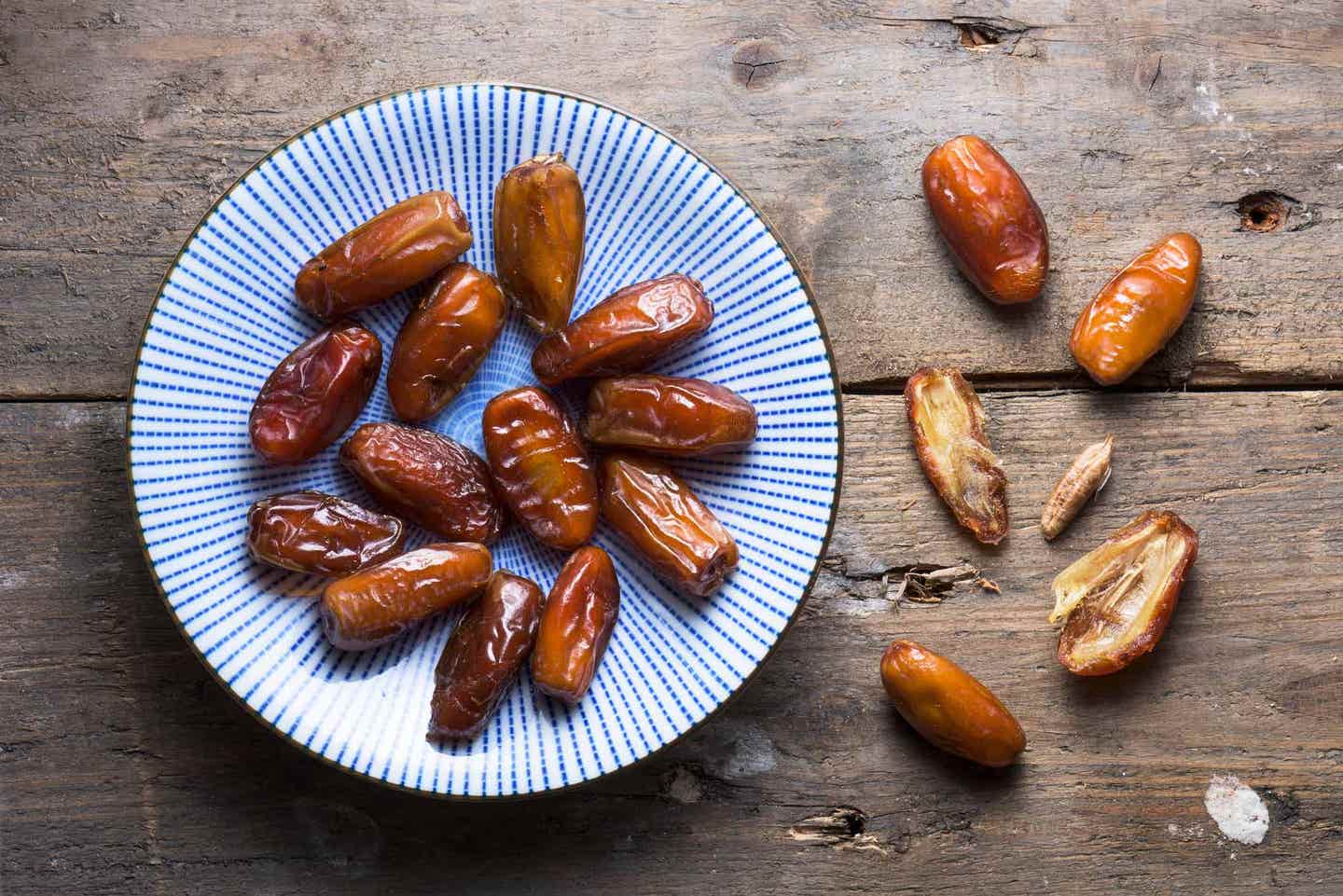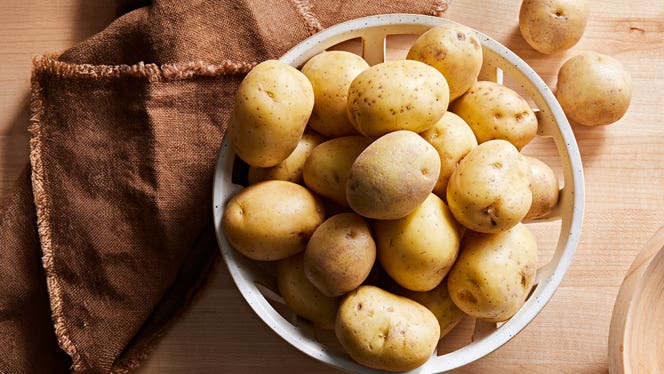Is it really possible to eat more and weigh less? Yes, says Chef AJ, author of The Secrets to Ultimate Weight Loss. If you want to look and feel your best this summer—without having to count calories or go hungry—this guide is the perfect read to toss in your beach bag. It will help you fine-tune your diet to beat cravings, end food addiction, and lose weight the plant-based way. We caught up with Chef AJ to get the most important takeaways from her book, plus a few surprising tips. Read on to get the scoop on healthy weight loss.
FOK: What are the most important takeaways from your new book?
AJ: That regardless of how long, or how deeply, you have suffered from a lifestyle-related disease, excess weight, or food addictions, once you get the food right, there is hope for a full recovery. When you truly understand what to eat, you don't have to worry about how much you eat. And that health food can taste absolutely delicious.
FOK: Understanding the idea of calorie density seems to be the key to unlocking the secrets to weight loss. Can you give us a short lesson on calorie density?
AJ: Calorie density simply means calories per pound of food, and foods range in caloric density from about 100 calories per pound for non-starchy vegetables to 4,000 calories per pound for oil. So there is a 40-fold difference in the caloric density of various foods. A mere tablespoon of olive oil has more calories than 2 pounds of zucchini! Understanding caloric density is not about counting calories, or memorizing how many calories are in a cup of rice or half a cup of blueberries. When you change the average calorie density of the food you eat each day, you can literally consume twice as much food in terms of volume, yet take in half as many calories. So you never have to feel hungry or deprived or count calories, carbs, or points. As luck would have it, the healthiest, most nutrient-dense foods on the planet, the whole plant foods (fruits, vegetables, whole grains, and legumes) and are also the most calorically dilute. By understanding and implementing calorie density, you really can eat more and weigh less.
FOK: Any tips for getting started on a weight loss journey?
AJ: It is essential to sanitize your environment if you want to be successful with any kind of dietary or lifestyle change. As I often say in my Ultimate Weight Loss program: “If it’s in your house, it’s in your mouth.” It’s not a question of if you will eat it, only when. Willpower is only required if you have to make a decision, and you never have to decide to not eat something that isn’t there in the first place. When some people remove all the unhealthy, toxic, trigger foods from their environment their cupboards are completely bare. It's imperative to shop for healthy food and learn some easy batch cooking techniques because it’s easy to make the right choice when only healthy food is available.
FOK: In the book, you suggest keeping a food journal. Why do you think it’s essential to do so?
AJ: Because what is recorded gets remembered, and you are less likely to eat that Cinnabon if you have to write it down. Keeping a food journal helps keep you accountable, especially if you have someone who will be looking at it. Research shows that people who write down what they eat lose more weight than people who don't log their food. Old fashioned pen to paper is best.
FOK: I’m obsessed with your idea of “Vegetables for Breakfast” (VFB). Can you explain the habit of VFB and why it’s so crucial for lasting weight loss?
AJ: Pretty much all countries with the exception of the United States eat vegetables as part of a healthy breakfast. Whether it’s the vegetable miso soup in Japan, the kimchi in Korea, or the pickled vegetables in China, most countries eat a savory breakfast. It’s pretty much only the United States that considers sugar, flour, and caffeine breakfast. If you want to lose weight, make sure that at least half your plate at every meal, yes even breakfast, is vegetables. That will dilute the overall caloric density of every meal. In addition, vegetables, especially the dark green leafy ones have compounds called thykaloids, which have been proven to turn off the hunger switch and fight cravings for unhealthy junk food, especially sugar. So whether you want to lose weight, recover from food addiction, or just get healthier, the best thing you can do is to start your day in a savory way with vegetables. But you need to eat them whole, not juiced or blended.
FOK: What is your favorite way to consume “Vegetables for Breakfast”?
AJ: My favorite way to consume any vegetables, besides a delicious chopped salad, is roasted. Whether done in a conventional oven or an air fryer, roasting brings out the natural sweetness in vegetables and caramelizes them so that even people who are vegetable adverse will love them. When you make my recipe for Oven Roasted Balsamic Dijon Glazed Brussels Sprouts, you would swear you’re eating candy!
FOK: What’s your favorite recipe from the book?
AJ: Boy that’s a tough one because I only put my favorite recipes in the book, but I think I would have to say the Creamy Curried Kabocha Squash Soup, Barefoot Dressing, and the C.R.A.M (Carrot, Raisin, Apple and Millet) Muffins.
FOK: Do you have any tips for someone who is already eating a whole-food, plant-based, no-oil diet but is still not losing the weight that they want to lose?
AJ: Immerse yourself in the science of calorie density, which is explained in great detail in my book. If someone is still overweight eating a plant-based diet, then some calorie dense foods are sneaking in somewhere. For some people, it’s because of too many of the high-fat plant foods like nuts, seeds, and avocados, which while healthy, are very calorically dense. It could also be from processed foods like sugar, flour, or alcohol, which for a food addict, is often very hard to moderate their use of. Even eating excessive salt can stimulate the appetite and cause people to overeat. But whether your goal is weight loss, recovering from food addiction, or just to achieve optimal health, the solution is calorie dilution.
Ready to get started? Check out Forks Meal Planner, FOK’s easy weekly meal-planning tool to keep you on a healthy plant-based path. To learn more about a whole-food, plant-based diet, visit our Plant-Based Primer.

Related News
Save 40% This WeekOn Forks Meal Planner

Forks Meal Planner takes the hard work out of making nutritious meals the whole family will enjoy.
SAVE $200 ON OUR ULTIMATE COURSE

Join our best-selling course at a new lower price!



